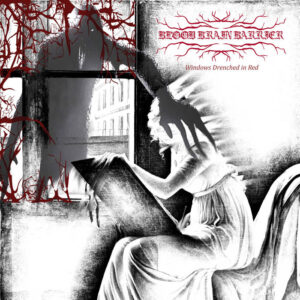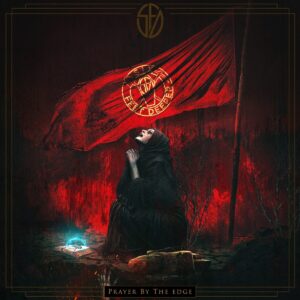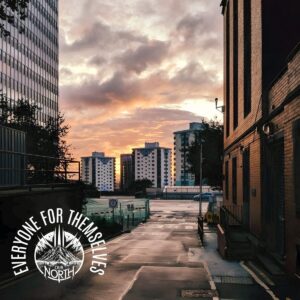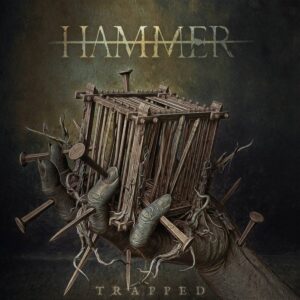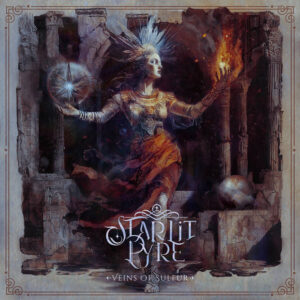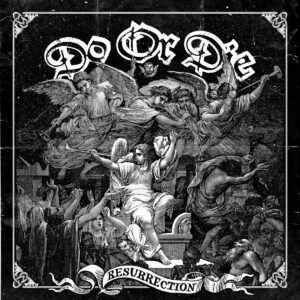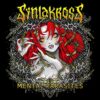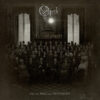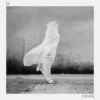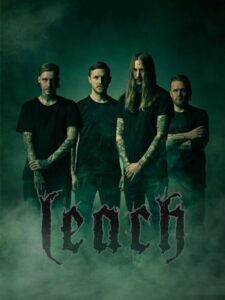Nādha
Nādha
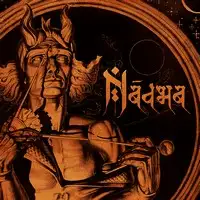
The end of anything can be a beginning for something new, something unexpected, but good. This concept has deep roots on the religions of India, Japan and all those ways of thinking that are far from Abrahamic religions. In daily reality, it happens all the time, and on music, it's not different. Maybe it can be a good starting point to deal with "Nādha", the first album of NĀDHA, a Brazilian quartet that hails from Rio de Janeiro. On the band's ranks are experienced musicians on the local scene, known for their works with acts as AINUR, SOLIFVGAE, ABSOLEM, AINUR, DARK TOWER, INNOCENCE LOST, IMPACTO PROFANO, UNEARTHLY, and others.
With such ample range of musical influences, the music of the quartet is extremely unusual, and can be faced as a form of Death Metal, or maybe an extreme way into Progressive Metal. It's filled with a very good technical work, vocals dealing with harsh tunes of clean voices (and some guttural moments appear as well), many melodic arrangements and contrasts that can sound weird for those who are limited to few forms of music. It means that the core of the band's music is hard to describe with words, is constantly changing. So the best to do is to hear and enjoy, because it's very good, indeed. The production used an abrasive and defined outfit for the sonority of the album, with drier tunes for the drums (for building a form of being fully understood), but with guitars sounding aggressive and distorted (but, of course, dealing with them in a way where the melodic arrangements and duets can be heard and absorbed). It's a very good work, indeed, sounding organic in many moments. And the artwork for the cover points to the core of the concepts dealt by the lyrics (the name of the band comes from the Sanskrit नादयोग, a philosophical and medicinal system, and a form of Yoga).
Musically, as written above, the album's songs are a recollection of many different influences into Metal, and even outside of its limits (having in mind that Brazilian people are culturally rich in terms of regional forms of music, and people grow inside of them, even without conscience of this). With an intro based on bass guitar, "Anāhata" opens the album, being a song that is simple, abrasive and full of aggressiveness, but with some melodic moments created by the guitars (and what very good work of bass guitar and drums). Showing some extreme playing on the drums contrasting with intricate guitar riffs, "The Marble and the Sculptor" shows again the more aggressive side of the band's music, fusing traces of Thrash Metal and Death Metal (and the lyrics are references to Alexis Carrel, a French biologist who created a way of cardiac surgery).
On "Summons to Contest", the speed decreases, the weight and hooks become evident, and the Old School Melodic Death Metal influences arises, and it's the kind of song that hooks the listeners (and the vocals are excellent, showing the versatility of Eregion's voice). The contrasts between more melodic arrangements with the aggressive grasp of the band's identity, "Umbra Penumbra" shows a fine technical approach, with many rhythmic shifts. Using melodic traces mixed with old touches that come from BLACK SABBATH's omnipresent influences, "Sketches of Fragments" presents abrasive groove parts and heavier guitar riffs and excellent bass guitar parts (Bruno's playing is really unusual, full of Jazz/Progressive touches). Mixing Progressive Death Metal with modern Groove Metal traces, "Ephemeral Being" shows many hooks and melodic Thrash Metal parts contrasting with blast beats and fast drumming (Jean always presents very good drums' arrangements).
On "O Canto Vil" (that means "The Vile Chant", and it's sung in Brazilian Portuguese) shows some traces of Brazilian percussive parts, boosting some influences of Brazilian Groove Metal, but traces of Blues Rock and Rock 'n' Roll can be felt. And as an instrumental song, "Nādha" allows the quartet to show all its musical influences, with contrasts between parts and with excellent playing of all the instruments (Juan's solos improved a lot, showing feeling and god technique), and pay attention carefully, because it's rich in different sets of instrumental arrangements. "Andar na Pedra" is a version of the quartet for an old RAIMUNDOS song (a famous band in Brazil who fused Rock 'n' Roll with some regional rhythms), here presented with an abrasive and weighty outfit, but respecting the harmonies of the original song. And "Wheel of Fortune" brings a band into a modern Death/Thrash Metal form, with some very good instrumental hooks improved by the Groove Metal touches.
For a first coming, "Nādha" is an excellent release, and as NĀDHA matures and solidify its musical core, maybe they can be the new sensation of the country in Metal.
10 / 10
Masterpiece
Songwriting
Musicianship
Memorability
Production
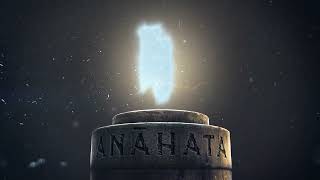
"Nādha" Track-listing:
1. Anāhata
2. The Marble and the Sculptor
3. Summons to Contest
4. Umbra Penumbra
5. Sketches of Fragments
6. Ephemeral Being
7. O Canto Vil
8. Nādha
9. Andar na Pedra (Raimundos cover)
10. Wheel of Fortune
Nādha Lineup:
Felipe Eregion - Vocals, Guitars
Juan Carlos - Guitars, Backing Vocals
Bruno Rodrigues - Bass
Jean Falcão - Drums
More results...
